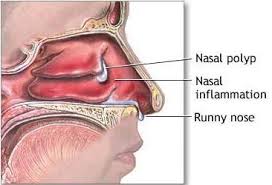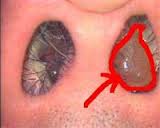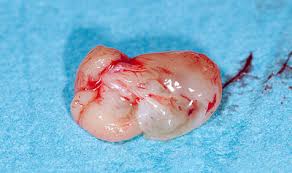Early Signs of Nasal Polyps

Early detection of nasal polyps can speed up diagnosis and help treat the condition as soon as possible. Nasal polyps are small nodules found in the interior of the nose or nasal passage and as soon as you notice or feel anything out of the ordinary, particularly if it hinders breathing, then you should seek medical advice.
Some of the signs and symptoms nasal polyps cause can in fact mimic other health complaints and as a result people who have them may be completely unaware of their presence. It is only when the nasal passage is examined properly by a health professional that nasal polyps can be diagnosed and consequently treated.
One of the first signs of nasal polyps is when it becomes difficult to breathe and the nasal passages are constructed causing the person to breathe through the month. This is often mistaken for congestion during a cold but persistent restricted breathing can be a warning of nasal polyps.
Constant stuffiness and a runny nose are also early warning signs of nasal polyps but again thee two symptoms can be mistaken for a common cold. Sinus infections are also a result of the presence of nasal polyps and generally follow on from a cold. Loss or reduced sense of smell is another sign of nasal polyps given that they often block the membranes that help with our sense of smell.
Frequent headaches and chronic snoring are also related to nasal polyps and once detected and conformed by a doctor can be treated. Treatment is either in the form of a nasal spray, which helps keep the polyps small, or in the case where they are large surgery is often the alternative solution.


